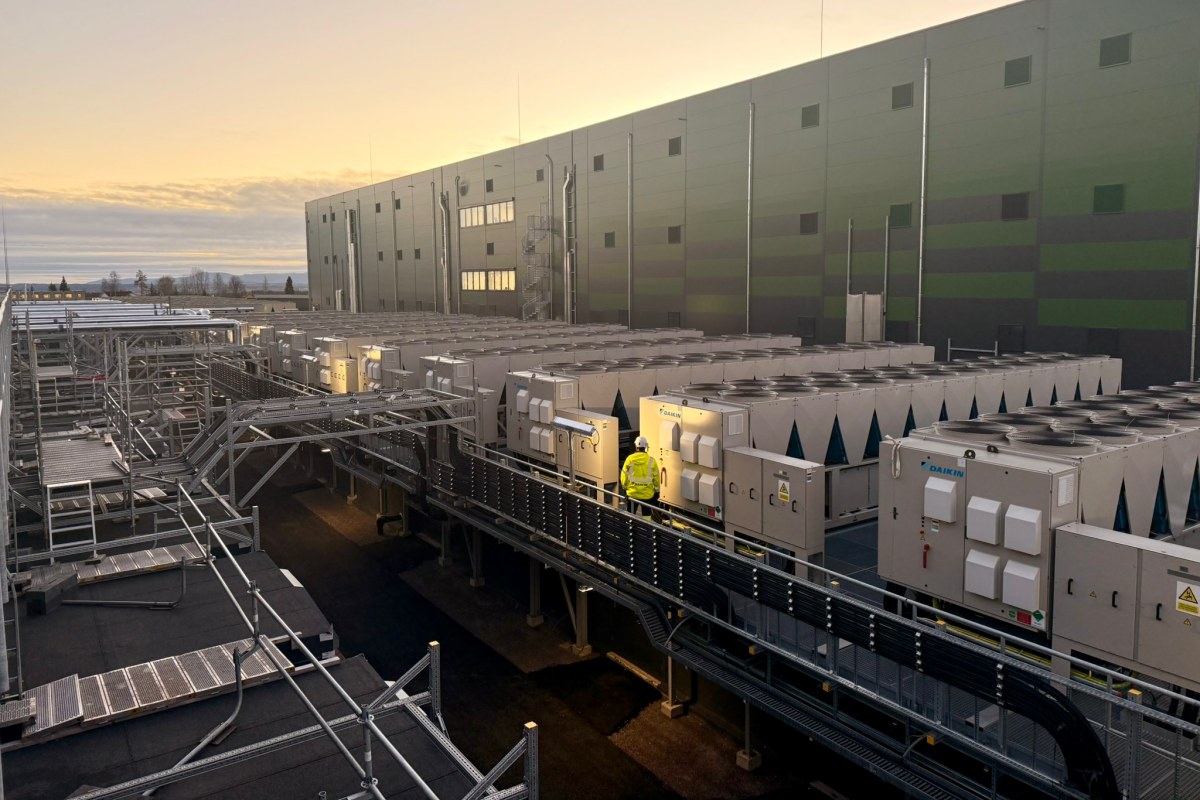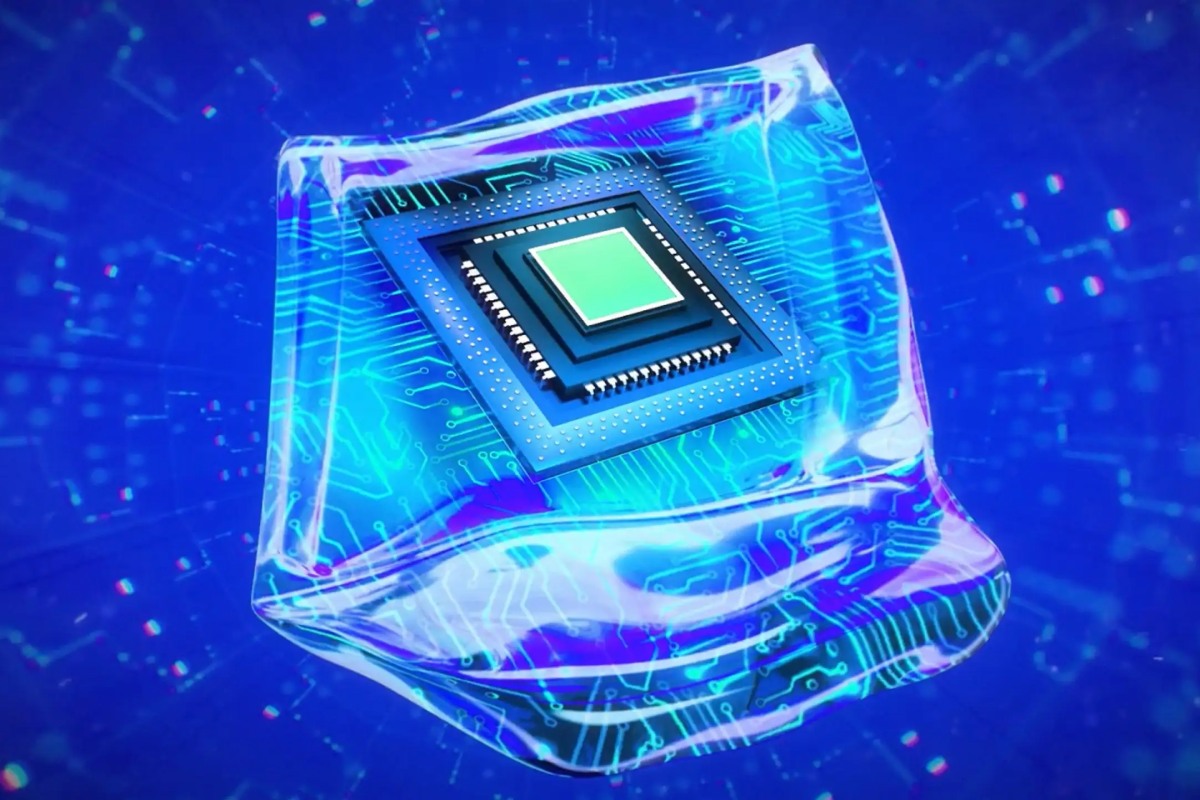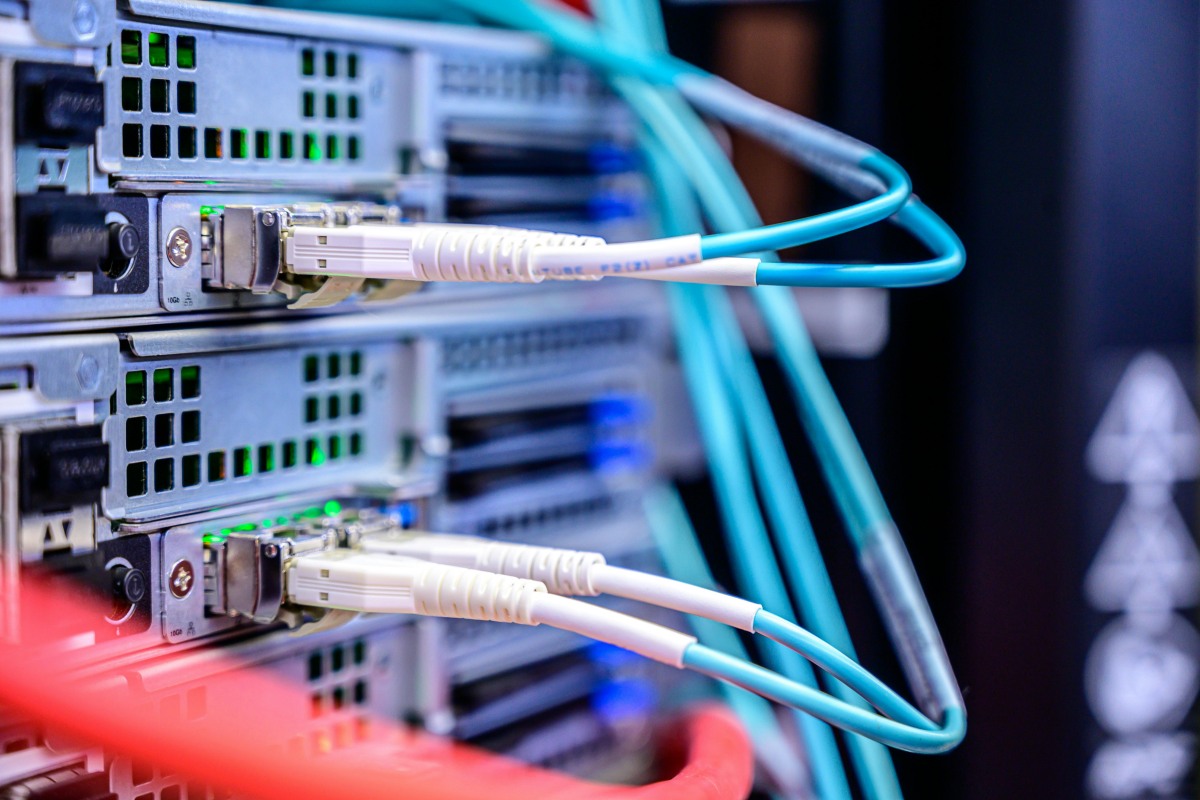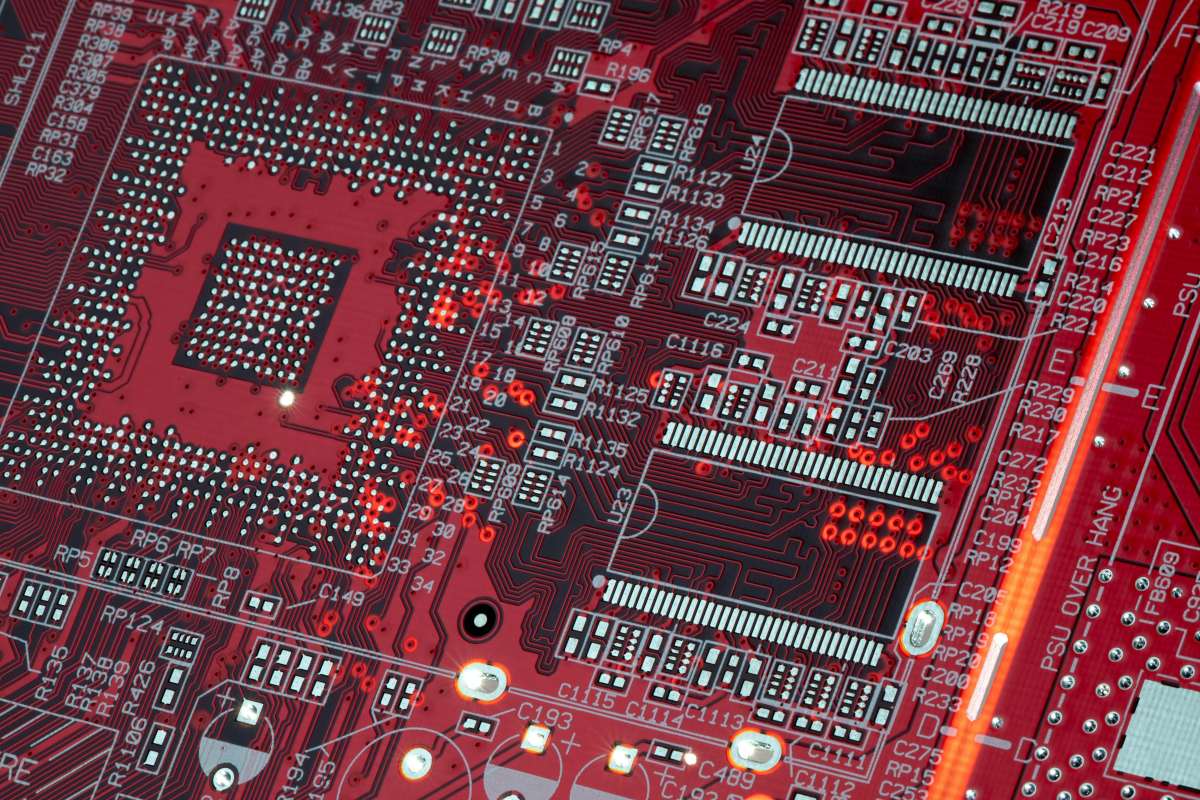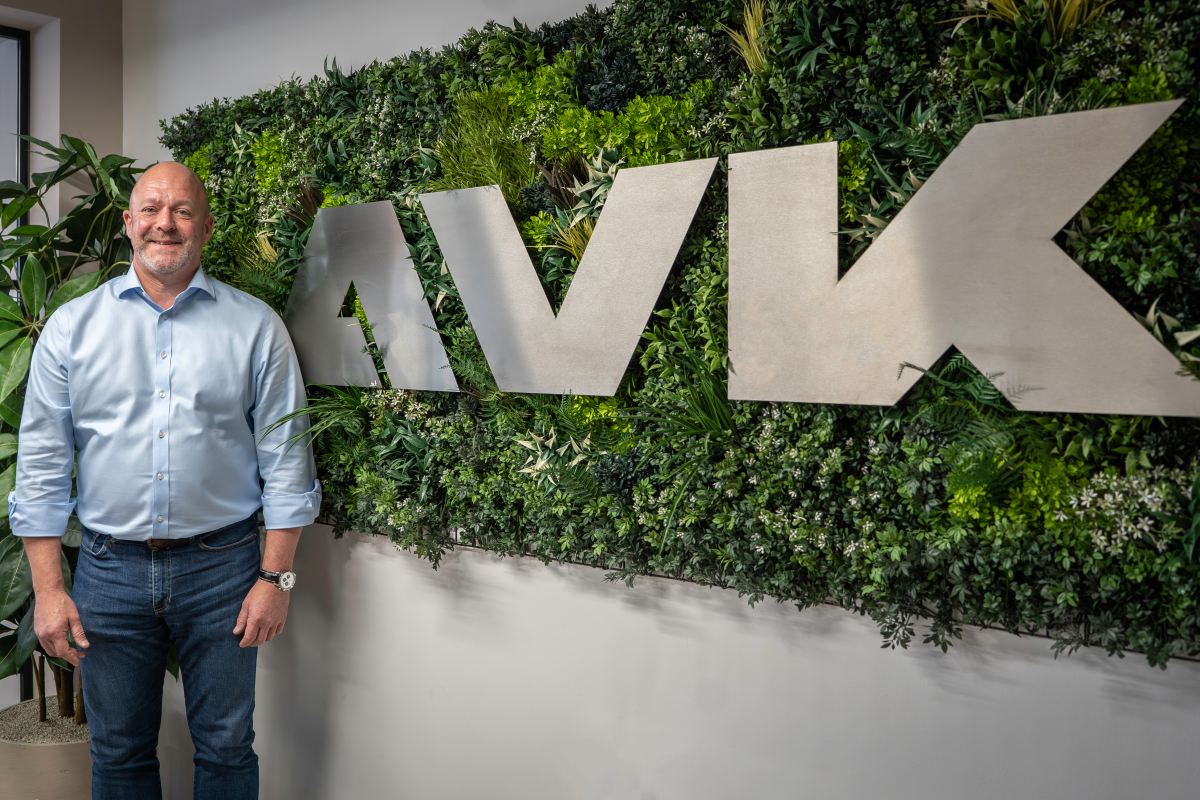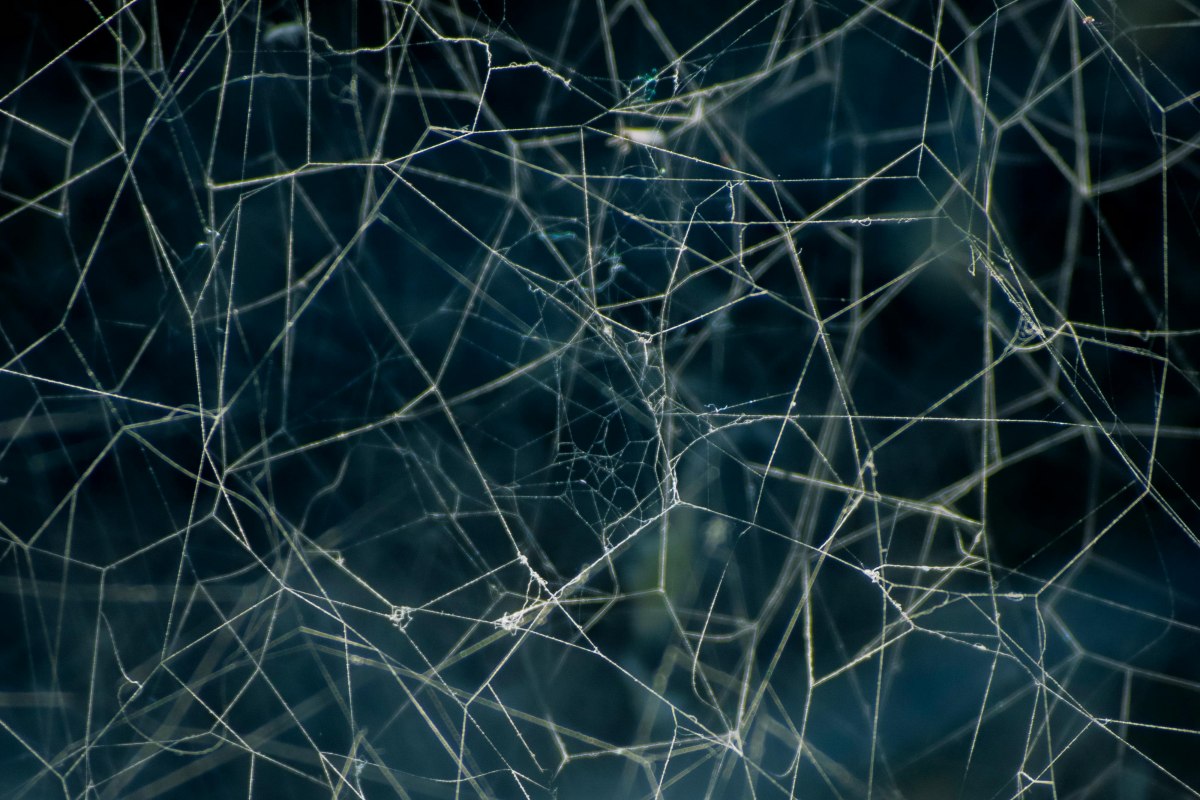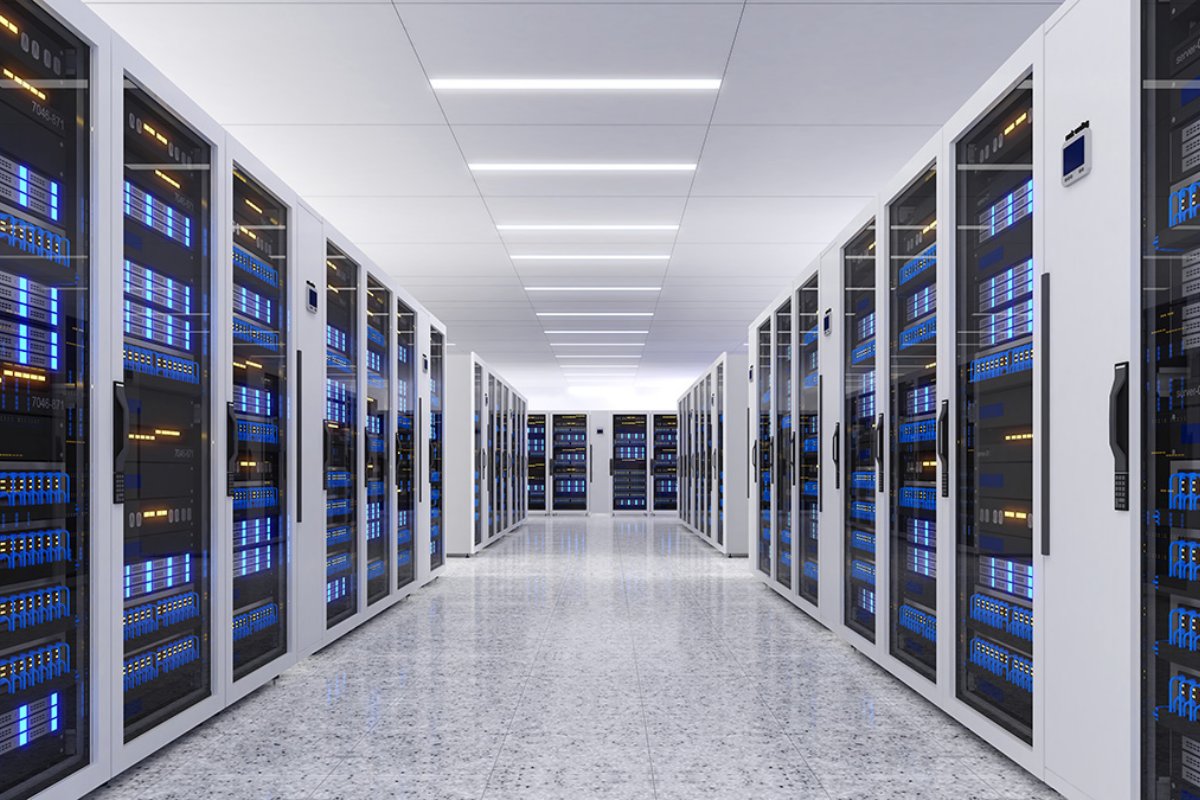Data Centre Infrastructure News & Trends
Cooling
Data Centre Infrastructure News & Trends
Events
Innovations in Data Center Power and Cooling Solutions
Daikin to showcase cooling at DCD London
Daikin, a Japanese manufacturer of air conditioning and refrigeration systems, will present its latest data centre cooling technologies at Data Centre Dynamics (DCD) London this September. The company’s team will share strategies to support energy efficiency, operational resilience, and sustainability in mission-critical environments.
The event takes place at the Business Design Centre in London, where delegates will hear how Daikin’s systems are "designed to meet rising demand from artificial intelligence, cloud computing, and edge processing."
Cooling systems for high-density environments
Daikin will highlight its glycol-free chillers from the TZ D series, designed to provide enhanced heat transfer while avoiding the risks and maintenance associated with glycol-based systems.
These air-cooled chillers operate from –20°C to +55°C, with options extending to –35°C for colder climates, and feature integrated free cooling to reduce energy use and emissions.
For airside applications, Daikin says it offers:
• Pro-C CRAH units delivering 30–200kW of cooling, with optimised airflow for high-density racks and aisle containment systems• Pro-W fan arrays providing up to 500kW of cooling, with modular configurations for scalable performance in large-scale data halls
Intelligent control for energy efficiency
The company will also demonstrate its Intelligent Data Center Manager (iDCM), a control platform capable of sequencing up to 20 chillers and pumps. By applying AI and machine learning, iDCM aims to build real-time performance profiles to balance load, extend equipment life, and cut energy use.
Daikin says iDCM can achieve energy savings of up to 20% compared with conventional control, while supporting Tier III and Tier IV resilience requirements. The system is designed to improve Power Usage Effectiveness (PUE), Water Usage Effectiveness (WUE), and total cost of ownership.
Supporting net-zero targets
Francesco Di Giovanni, Senior Consulting Engineer at Daikin, will host a technical lunch session at DCD London. Drawing on over 15 years of experience across EMEA, he will explore the role of thermal management in the AI era, presenting approaches to improve efficiency, manage system loads, and enable progress towards net zero.
Daikin’s cooling systems use low-GWP refrigerants, reclaimed gases, and modular design to reduce embodied carbon and meet regulatory requirements such as F-Gas and MEES. The company’s vertically integrated supply chain and lifecycle service model aim to ensure long-term reliability in data centre environments.
For more from Daikin, click here.
Joe Peck - 8 September 2025
Data Centre Infrastructure News & Trends
Innovations in Data Center Power and Cooling Solutions
Liquid Cooling Technologies Driving Data Centre Efficiency
Castrol and Airsys partner on liquid cooling
Castrol, a British multinational lubricants company owned by BP, and Airsys, a provider of data centre cooling systems, have formed a partnership to advance liquid cooling technologies for data centres, aiming to meet the growing demands of next-generation computing and AI applications.
The collaboration will see the companies integrate their technologies, co-develop new products, and promote greater industry awareness of liquid cooling. A recent milestone includes Castrol’s Immersion Cooling Fluid DC 20 being certified as fully compatible with Airsys’ LiquidRack systems.
Addressing rising cooling demands in the AI era
The partnership comes as traditional air-cooling methods struggle to keep pace with increasing power densities.
Research from McKinsey indicates that average rack power density has more than doubled in two years to 17kW. Large Language Models (LLMs) such as ChatGPT can consume over 80kW per rack, while Nvidia’s latest chips may require up to 120kW per rack.
Castrol’s own research found that 74% of data centre professionals believe liquid cooling is now the only viable option to handle these requirements. Without effective cooling, systems face risks of overheating, failure, and equipment damage.
Industry expertise and collaboration
By combining Castrol’s 125 years of expertise in fluid formulation with Airsys’ 30 years of cooling system development, the companies aim to accelerate the adoption of liquid cooling.
Airsys has also developed spray cooling technology designed to address the thermal bottleneck of AI whilst reducing reliance on mechanical cooling.
"Liquid cooling is no longer just an emerging trend; it’s a strategic priority for the future of thermal management," says Matthew Thompson, Managing Director at Airsys United Kingdom.
"At Airsys, we’ve built a legacy in air cooling over decades, supporting critical infrastructure with reliable, high-performance systems. This foundation has enabled us to evolve and lead in liquid cooling innovation.
"Our collaboration with Castrol combines our engineering depth with their expertise in advanced thermal fluids, enabling us to deliver next-generation solutions that meet the demands of high-density, high-efficiency environments."
Peter Huang, Global President, Data Centre and Thermal Management at Castrol, adds, "Castrol has been working closely with Airsys for two years, and we’re excited to continue working together as we look to accelerate the adoption of liquid cooling technology and to help the industry support the AI boom.
"We have been co-engineering solutions with OEMs for decades, and the partnership with Airsys is another example of how Castrol leans into technical problems and supports its customers and partners in delivering optimal outcomes."
For more from Castrol, click here.
Joe Peck - 5 September 2025
Data Centre Infrastructure News & Trends
Enterprise Network Infrastructure: Design, Performance & Security
News
Telehouse Thailand & NT to enhance ASEAN connectivity
Telehouse Thailand, a provider of data centre colocation services, has partnered with National Telecom (NT) to enhance international data transmission via submarine cable systems.
The collaboration aims to reinforce the country’s telecommunications backbone and support digital transformation across both public and private sectors.
The agreement links NT’s international submarine cable network directly to the Telehouse Bangkok data centre, which is now fully operational. This connection allows Telehouse Thailand to provide domestic content providers and internet service providers (ISPs) from neighbouring countries with access to the Asia Direct Cable (ADC) and Asia America Gateway (AAG) systems.
The ADC network connects China, Hong Kong, Japan, the Philippines, Singapore, Thailand, and Vietnam, while the AAG network extends from Asia to the United States. Together, these systems link key data centre locations hosting major cloud and content providers, and establish direct connections with global markets.
NT’s domestic submarine cable system offers alternative routing through Thailand’s Gulf coast to its international landing stations in Songkhla and Satun, supporting reliable connectivity across multiple regions.
Strengthening Thailand’s digital infrastructure
Alongside benefits for private companies and public organisations, the partnership supports the Thai government’s aim of positioning the country as an ASEAN Digital Hub, encouraging investment and enabling regional digital growth.
Colonel Sanpachai Huvanandana, President of NT, says, "This collaboration expands Thailand’s business potential and telecommunications readiness in the AI era.
"With terabit-scale capacity and high-reliability network design, our international connectivity infrastructure addresses the critical requirements of global cloud and content providers when considering investment in Thai data centre facilities."
Ken Miyashita, Managing Director of Telehouse Thailand, adds, "Leveraging NT’s submarine cable network, a core element of Thailand’s telecommunications infrastructure, enables our customers to efficiently handle the huge volumes of data traffic from Gen AI and cloud services, which are expected to significantly grow.
"As Bangkok’s leading carrier-neutral interconnection data centre, Telehouse further strengthens this submarine connectivity and high service availability with the four diverse incoming fibre routes."
For more from Telehouse, click here.
Joe Peck - 4 September 2025
Data Centre Infrastructure News & Trends
Enterprise Network Infrastructure: Design, Performance & Security
News
84% of businesses report rising network outages
Nearly nine in ten organisations have experienced an increase in network outages over the past two years, with more than a quarter reporting increases of 25% to 50%, according to new research from Opengear, a developer of remote infrastructure management systems and a Digi International company.
The rise in outages has reportedly cost more than a third of businesses between $1 million (£744,000) and $5 million (£3.7 million) in the past year alone. Over half of organisations also noted a 10-24% increase in outages over the two-year timeframe.
The survey, designed to identify critical pain points affecting data centre operations, polled over 1,000 CIOs, CSOs, and network engineers across the UK, US, France, Germany, and Australia. The survey highlights how network outages are causing significant disruptions across data centre operations, affecting everything from system availability to business continuity.
What the research shows
Network engineers identified the most common causes of these outages as device configuration changes (highlighted by 27%) and server hardware failures (referenced by 26%), both of which can severely impact the stability and performance of data centres.
To mitigate these risks, nearly a third of organisations (32%) rank AI and machine learning technologies among the technologies they have primarily invested in to support data centre operations. At the same time, 30% expect to increase spending on Out-of-Band (OOB) management solutions over the next five years to meet this same goal.
Patrick Quirk, President and General Manager, Opengear, says, “Outages are no longer isolated events; they are happening more often and the cost is hitting businesses hard. Complexity, ageing infrastructure, human error, and cyberattacks are all part of the problem.
"Governments are starting to take notice too, putting policies in place to protect critical digital infrastructure. As organisations lean more heavily on data centres to power digital transformation, the stakes are higher than ever. An outage is not just downtime; it is lost revenue, lost productivity, and lost trust.
“Forward-looking businesses are not standing still; they are rethinking their strategies to build resilience into every layer of their operations. One clear shift is towards decentralisation, pushing workloads closer to where data is generated and consumed. That move reduces risk from a single point of failure, but it also demands new approaches to management and security.”
As businesses adopt decentralised data processing models, 28% of organisations view the shift to edge computing and distributed networks as a trend that will significantly impact network management within their data centres over the next five years.
This move towards edge computing further reflects the broader trend of decentralisation in network architecture, which - while offering operational efficiencies - requires more sophisticated management systems to handle the increased complexity of data centre operations.
According to Patrick, “Edge computing brings clear advantages in speed, security, and efficiency, but it does not make the job easier. Distributed environments create more moving parts, and that means more opportunity for failure if they are not managed properly.
"The answer is a resilient foundation and secure remote management that keeps infrastructure reachable and under control, no matter where it is deployed.”
Joe Peck - 3 September 2025
Artificial Intelligence in Data Centre Operations
Data Centre Infrastructure News & Trends
Data Centre Operations: Optimising Infrastructure for Performance and Reliability
Enterprise Network Infrastructure: Design, Performance & Security
News
World's first AI internet exchange launched by DE-CIX
DE-CIX, an internet exchange (IX) operator, has announced the launch of what it calls the world’s first AI Internet Exchange (AI-IX), making its global network of internet exchanges “AI-ready.”
The company has completed the first phase of the rollout, connecting more than 50 AI-related networks – including providers of AI inference and GPU services, alongside a range of cloud platforms – to its ecosystem.
DE-CIX says it now operates over 160 cloud on-ramps globally, supported by its proprietary multi-AI routing system. The new exchange capabilities are available across all DE-CIX locations worldwide, including its flagship site in Frankfurt.
Two-phase rollout
The second phase of deployment will see DE-CIX AI-IX made Ultra Ethernet-ready, designed to support geographically distributed AI training as workloads move away from large centralised data centres. Once complete, the operator says it will be the first to offer an exchange capable of supporting both AI inference and AI training.
AI inference – where trained models are applied in real-world use cases – depends on low-latency, high-security connections. According to DE-CIX CEO Ivo Ivanov, the growth of AI agents and AI-enabled devices is creating new demand for direct interconnection.
“This is the core benefit of the DE-CIX AI-IX, which uses the unique DE-CIX AI router to enable seamless multi-agent inference for today’s complex use-cases and tomorrow’s innovation in all industry segments,” Ivo says.
Ultra ethernet and AI training
Phase two focuses on AI model training. DE-CIX CTO Thomas King says that Ultra Ethernet, a new networking protocol optimised for AI, will enable disaggregated computing across metropolitan areas. This could reduce reliance on centralised data centres and create more cost-effective, resilient private AI infrastructure.
“Until now, huge, centralised data centres have been needed to quickly process AI computing loads on parallel clusters,” Thomas explains. “Ultra Ethernet is driving the trend towards disaggregated computing, enabling AI training to be carried out in a geographically distributed manner.”
DE-CIX hardware is already compatible with Ultra Ethernet and the operator plans to introduce it once network equipment vendors make the necessary software features available.
For more from DE-CIX, click here.
Joe Peck - 3 September 2025
Data Centre Infrastructure News & Trends
Enterprise Network Infrastructure: Design, Performance & Security
News
Products
rConfig launches Version 8 of its network configuration platform
Irish software developer rConfig has announced the release of Version 8 of its network configuration and compliance management platform.
The update introduces a new distributed architecture, enhanced security features, and broader vendor support. It has been designed to support large-scale environments, with capacity for more than 20,000 devices and faster search and compliance processes.
Key Features in Version 8
• Vector architecture — Distributed collection and multi-tenant scalability for managed service providers and large enterprises
• Security and compliance — Expanded policy frameworks, encrypted configuration storage, and reporting designed to meet regulatory requirements
• Performance — Proven capability to manage 20,000+ devices with faster compliance execution
• Vendor support — Broad compatibility without restrictions
Positioning in the Market
The company says the platform combines its open-source heritage with enterprise-level capability. Its distributed design, focus on compliance automation, and multi-vendor support aim to make it suitable for sectors including telecommunications, manufacturing, energy, and government.
rConfig is also developing AI-driven features, including automated compliance baselines, anomaly detection, and predictive analytics to support proactive network management.
Industry Collaboration
The company will be a Platinum Partner at Zabbix Summit 2025 in Riga this October, where it will demonstrate how Version 8 integrates with Zabbix for real-time configuration monitoring and compliance.
“With V8, we’ve set a new standard for the industry,” claims Stephen Stack, CTO of rConfig. “Our customers demanded speed, compliance, and distributed scale – we delivered. And with AI-driven innovation and our deepening partnership with Zabbix, we’re excited to lead the next chapter of network automation.”
Joe Peck - 2 September 2025
Data Centre Infrastructure News & Trends
Innovations in Data Center Power and Cooling Solutions
News
AVK appoints new Chief Operating Officer
AVK, a UK provider of power systems and electrical infrastructure for data centres, has announced the appointment of Paul Hood as its new Chief Operating Officer (COO). He brings extensive experience from senior roles in the data centre sector, including positions at Yondr Group, Pure Data Centres Group, Barclays, and JP Morgan.
Paul was formerly Managing Director and then COO of Yondr Group, and Global Operations Director and MD (Africa region) at Pure Data Centres Group. His career also includes 13 years at JP Morgan, where he oversaw the company’s entire data centre infrastructure across Europe, the Middle East, and Africa, managing an annual budget of $90 million (£67 million).
Industry experience
Paul’s background is rooted in systems and control engineering for building services, later expanding to building electrical systems management. He has also planned and administered multi-million-pound engineering budgets, conducted inspections in health, safety, and fire prevention, and co-founded the Universal Technical College network of STEM-focused schools.
Ben Pritchard, CEO of AVK, comments, “I am genuinely excited about Paul joining our team. He has a superb engineering brain, he is a very logical thinker, and he has a real passion for working hard. Essentially, he believes in what he does. Paul doesn’t just bring vast global experience to AVK; he is a leader who has done it all.”
Paul says, “I’ve known AVK for 30 years and I understand exactly where the company has come from and where it is going in this incredibly competitive industry. I am delighted to be working with some of the most committed infrastructure engineers in the world. I’m also known for investing in people, getting decisions done, and getting things over the line, and I’m truly excited about my forthcoming journey at AVK.”
Future role at AVK
Paul’s appointment comes as AVK pursues growth in integrated power infrastructure for data centres, including prime power, microgrids, standby, and modular energy systems. He is expected to play a key role in expanding service and maintenance operations, developing client relationships, and supporting long-term partnerships.
For more from AVK, click here.
Joe Peck - 2 September 2025
Data Centre Infrastructure News & Trends
Enterprise Network Infrastructure: Design, Performance & Security
News
DE-CIX becomes first in India to integrate Starlink
Internet exchange (IX) operator DE-CIX India has announced that Starlink has joined its interconnection platform, making it the first IX in the country to provide interconnection for Low-Earth Orbit (LEO) satellite services.
The move follows Starlink’s approval of a commercial licence from India’s Department of Telecommunications, with final clearance expected by late 2025 or early 2026. The partnership is expected to play a role in supporting India’s digital infrastructure and extending broadband access to underserved areas.
Expanding connectivity
Starlink services are priced at around ₹33,000 ($376 / £276) for hardware, with monthly costs of ₹3,000–₹4,200 ($35–$50 / £25-£35). The service offers speeds of 25–220 Mbps, which can provide broadband-grade access in remote regions beyond the reach of fibre networks.
DE-CIX says its infrastructure will provide the terrestrial backbone needed to support Starlink’s satellite connectivity, enabling reliable performance for applications such as streaming, video conferencing, and online gaming.
Satellite and terrestrial integration
Through its global Space-IX programme, DE-CIX provides interconnection for satellite operators by linking them with terrestrial networks and cloud services. The organisation says this integration is critical to maintaining low latency and high reliability.
By joining DE-CIX India’s platform, Starlink is positioned to operate as an internet service provider in the country, complementing existing terrestrial and mobile networks.
DE-CIX India operates across major metros including Mumbai, Delhi, Chennai, Kolkata, Hyderabad, and Bengaluru, and offers multiple 100GE ports for high-capacity connections.
For more from DE-CIX, click here.
Joe Peck - 1 September 2025
Data Centre Infrastructure News & Trends
Innovations in Data Center Power and Cooling Solutions
Sponsored
Powering data centres sustainably in an AI world
Data centres are getting bigger, denser, and more power-hungry than ever. Artificial intelligence's (AI) rapid emergence and growth only accelerates this process. However, AI could also be an enormously powerful tool to improve the energy efficiency of data centres, enabling them to operate far more sustainably than they do today.
This creates a kind of AI energy infrastructure paradox, with Hitachi Energy posing the question: Is AI a friend or foe of data centres' sustainability?
In its technical brief, the company explores:
• The factors that are driving the rapid growth in data centre energy demand,
• The steps taken to mitigate fast-growing power consumption trends, and
• The role that AI could play in the future evolution of both data centre management and the clean energy transition.
Register below to download the whitepaper now:
[ninja_form id='4']
Joe Peck - 1 September 2025
Data Centre Infrastructure News & Trends
Enterprise Network Infrastructure: Design, Performance & Security
News
Community IX launches new internet exchange in Virginia
Community IX, the operator of the FL-IX (South Florida) and CIX-ATL (Atlanta) internet exchanges (IXs), has launched a new exchange in Northern Virginia called CIX-NoVA. The service is initially available through data centres in Ashburn and Reston, with additional sites under review.
According to the organisation, the launch responds to customer demand for greater interconnection capacity in Northern Virginia, which is it regards as the world’s largest data centre and connectivity hub.
Community IX says it has already secured participants to anchor the new platform and, across its existing exchanges, the organisation already operates more than 30Tbps of installed port capacity.
Expanding interconnection services
Randy Epstein, co-founder and Executive Director of Community IX, says, “Since beginning operations in 2015, we’ve focused on providing a cost-effective, community-driven service to our membership and have experienced tremendous growth in Florida and later in the Atlanta Metro market.
"Over the years, we’ve been asked what other markets we can offer our service [to] and Northern Virginia has consistently come up in conversation.”
CIX-NoVA allows ISPs, content providers, and enterprises to exchange IP traffic across multiple sites in the region. The exchange is open to networks operating in Ashburn and Reston.
Community IX is offering new 10G and 100G port connections free for the first year (with a two-year agreement). 400G ports are also available, but the company says they are not included in this promotion.
Joe Peck - 27 August 2025

Head office & Accounts:
Suite 14, 6-8 Revenge Road, Lordswood
Kent ME5 8UD
T: +44 (0)1634 673163
F: +44 (0)1634 673173
